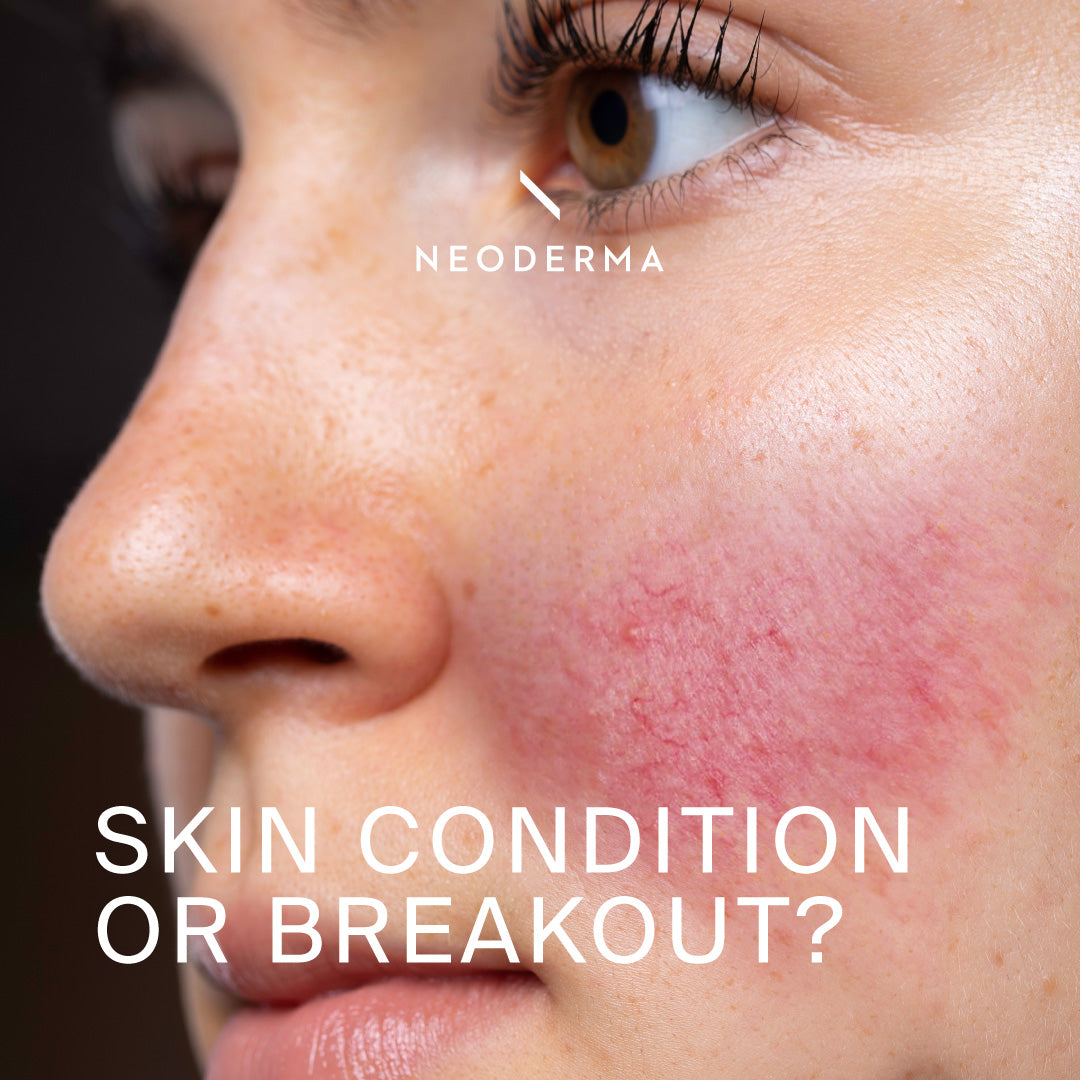Your cart is empty.

Skin conditions that can be mistaken for breakouts are not uncommon, as they often exhibit similar symptoms or appearances. However, mistaking these conditions for typical acne breakouts may lead to ineffective skincare approaches, exacerbating the underlying issue. Here are five examples of skin conditions that can be mistaken for breakouts:
(1) Rosacea. This common skin condition primarily affects the face, causing redness, flushing, and the development of small bumps or pustules. While it may resemble acne due to the presence of bumps, it typically lacks blackheads or whiteheads. Rosacea requires specialized care, and professional skincare brands may offer targeted products for managing this condition.
(2) Contact dermatitis. Contact dermatitis can occur when the skin comes into contact with an allergen or irritant, resulting in redness, itching, and sometimes small fluid-filled bumps. The appearance of these bumps can be similar to acne breakouts, but the presence of itching and a clear trigger, such as exposure to certain substances, can help differentiate it from acne.
(3) Perioral dermatitis. A rash of small red bumps or pustules around the mouth, nose, and chin characterizes this skin condition. It can be mistaken for acne due to its appearance, but it is often accompanied by dryness, itching, and a burning sensation.
(4) Folliculitis. Folliculitis refers to the inflammation of hair follicles, typically caused by bacterial or fungal infections. It manifests as red, inflamed bumps that can resemble acne breakouts, particularly in areas with hair, such as the scalp, beard area, or buttocks. Maintaining proper hygiene and incorporating natural skincare products that suit your skin type can help alleviate folliculitis.
(5) Keratosis Pilaris. Keratosis pilaris is characterized by small, rough bumps often appearing on the upper arms, thighs, or buttocks. These bumps can be mistaken for acne but usually lack inflammation or pus. If you experience any uncertain skin conditions, it is advisable to consult with a dermatologist or skincare professional for an accurate diagnosis and appropriate treatment.
They can provide personalized recommendations and suggest suitable skincare products from natural skincare brands, clean beauty brands, or luxury skincare brands to address your specific concerns.